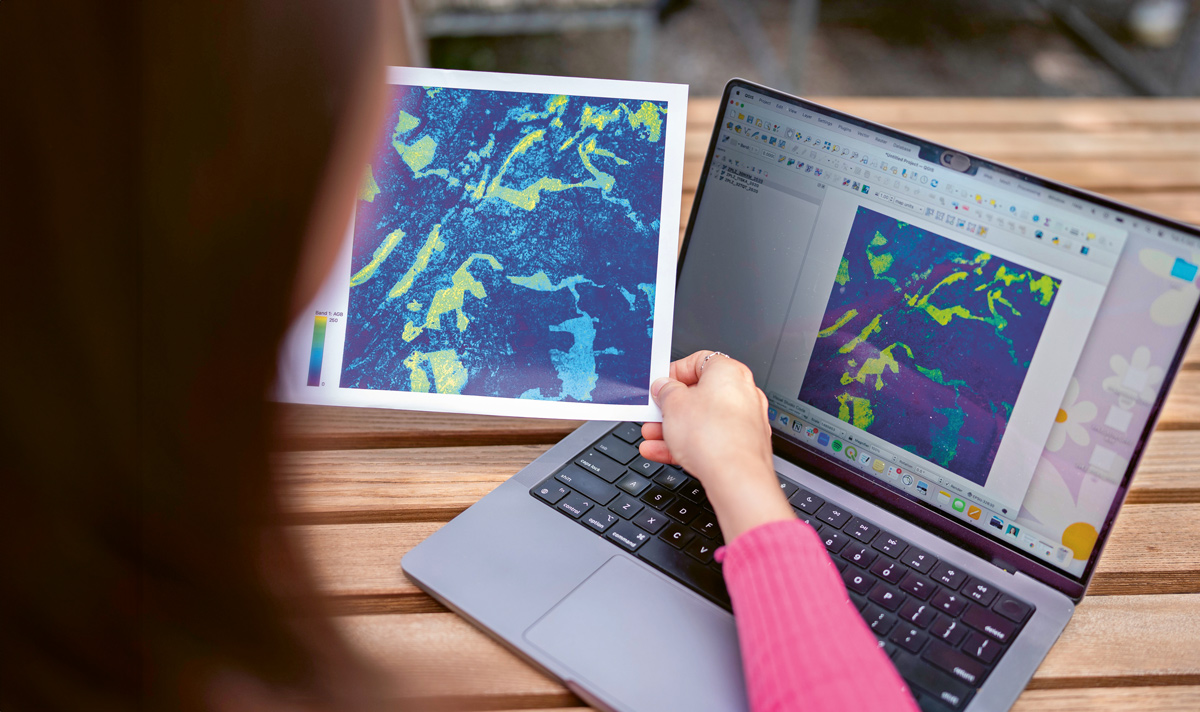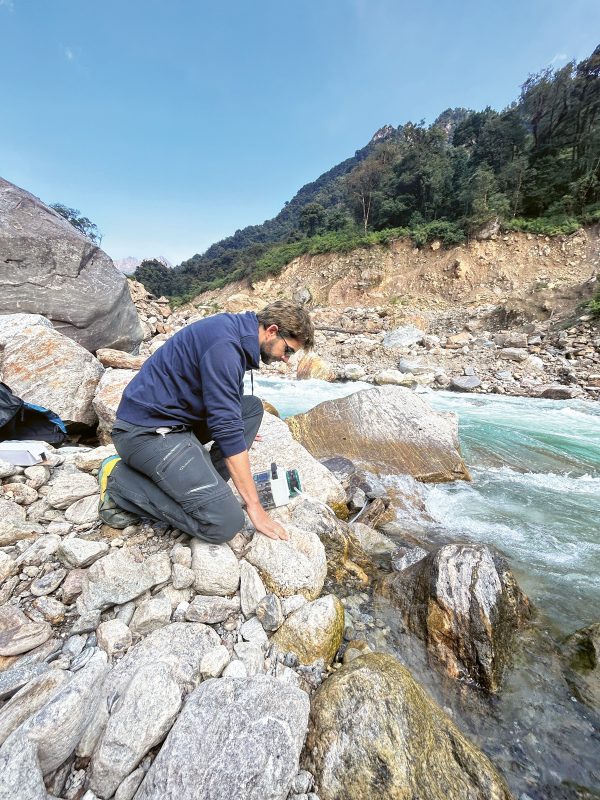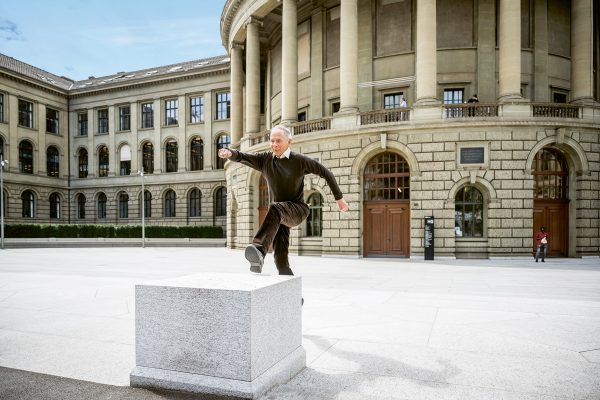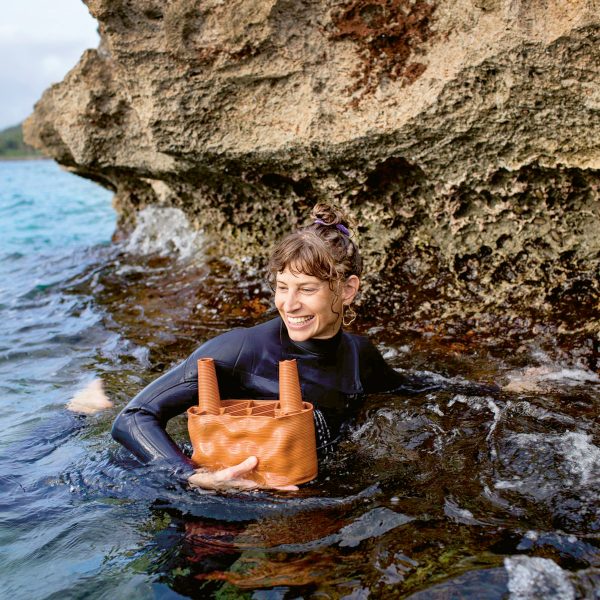Precision for the planet

Precision for the planet
Ghjulia Sialelli is harnessing machine learning to support environmental protection. Through her research at ETH, she aims to help preserve biodiversity and combat climate change.
“Achieving accurate estimates of forests and above-ground biomass is crucial,” Ghjulia Sialelli explains, “because this is the data that enables us to measure the amount of carbon stored in vegetation and how it changes over time.” Securing these estimates is the challenge behind her research as a fellow at the ETH AI Center. Her goal is to produce a high-resolution, interpretable global biomass map covering several years.
A model for greater control
Existing datasets on above-ground biomass often focus on specific regions or are only available in low resolution. This makes it difficult to assess carbon stocks with the required precision. “To meet their CO2 targets, many companies rely on offsetting. They purchase carbon credits from providers who use the proceeds to fund climate projects such as reforestation,” Ghjulia Sialelli explains. “But because we can’t monitor carbon stocks correctly, it’s hard to evaluate whether these measures are actually being implemented.” Her model aims to make the trade less error-prone by enabling the status of the vegetation to be assessed more accurately and over a period of several years. It also provides specific insights for protecting biodiversity by estimating how much biomass would be lost if a forest were cleared.
To develop her model, the doctoral student used openly accessible satellite data, including images from Sentinel-2, the Earth observation satellite operated by the European Space Agency (ESA) that regularly captures new images of every region on the planet. Ghjulia Sialelli supplemented this data with radar satellite data, global land cover maps, canopy height maps and NASA reference data. “Data quality is essential. Even the best model can’t deliver reliable results if the data it’s based on is flawed,” she stresses. She then designed a variety of machine learning techniques and developed her first baseline models. The next step is to gradually refine them further – by improving precision in how uncertainties are depicted, for example.

© ETH Foundation / Valeriano Di Domenico
© ETH Foundation
Encouraging critical thinking
Originally from Corsica, Ghjulia Sialelli first came to ETH Zurich for an exchange semester during her Bachelor studies at the École polytechnique near Paris. Excited by the active community and the broad span of research conducted in sustainability, she then chose to return to Zurich for her Master’s degree in computer science.
It was during the ETH interdisciplinary course “AI for Good” that she connected with UZH Professor Jan Dirk Wegner, who later supervised her Master’s thesis alongside Konrad Schindler, ETH Professor of Photogrammetry and Remote Sensing. Towards the end of her degree, Ghjulia Sialelli was offered the opportunity to continue her research as part of a doctoral programme. She applied for a fellowship at the ETH AI Center, funded by the Dieter Schwarz Foundation, and was delighted to be accepted. “The fellowship has given me access to a fantastic network that greatly benefits my work. It’s also a valuable endorsement of the quality of my research,” she says.
That artificial intelligence harbours great potential for addressing challenges in the environment, medicine and humanitarian aid, Ghjulia Sialelli is of no doubt. At the same time, she’s convinced of the need to approach new developments with a critical eye. “AI is a very powerful tool. How we use it can also have negative consequences,” she says. In her own work, she prefers to use smaller models wherever possible, as they require less computing power and are more resource-efficient.
Environmental responsibility is a key issue to the young researcher at all levels – whether as former president of the Student Sustainability Committee or as an organiser of the AI + Environment Summit. “My generation has grown up with the climate crisis. For me, living consciously is a given.” Ghjulia Sialelli hopes her biomass monitoring model will also help inform political decision-making on biodiversity protection – and in doing so, contribute to long-term climate solutions.
AI Fellowship programme
The offer of research fellowships to outstanding international doctoral and postdoctoral students forms one of the core pillars of the ETH AI Center. The selected fellows work on a range of subjects, from basic research to applications in areas such as robotics, digital health, learning sciences and natural language processing. The fellowships are largely made possible through donations.


